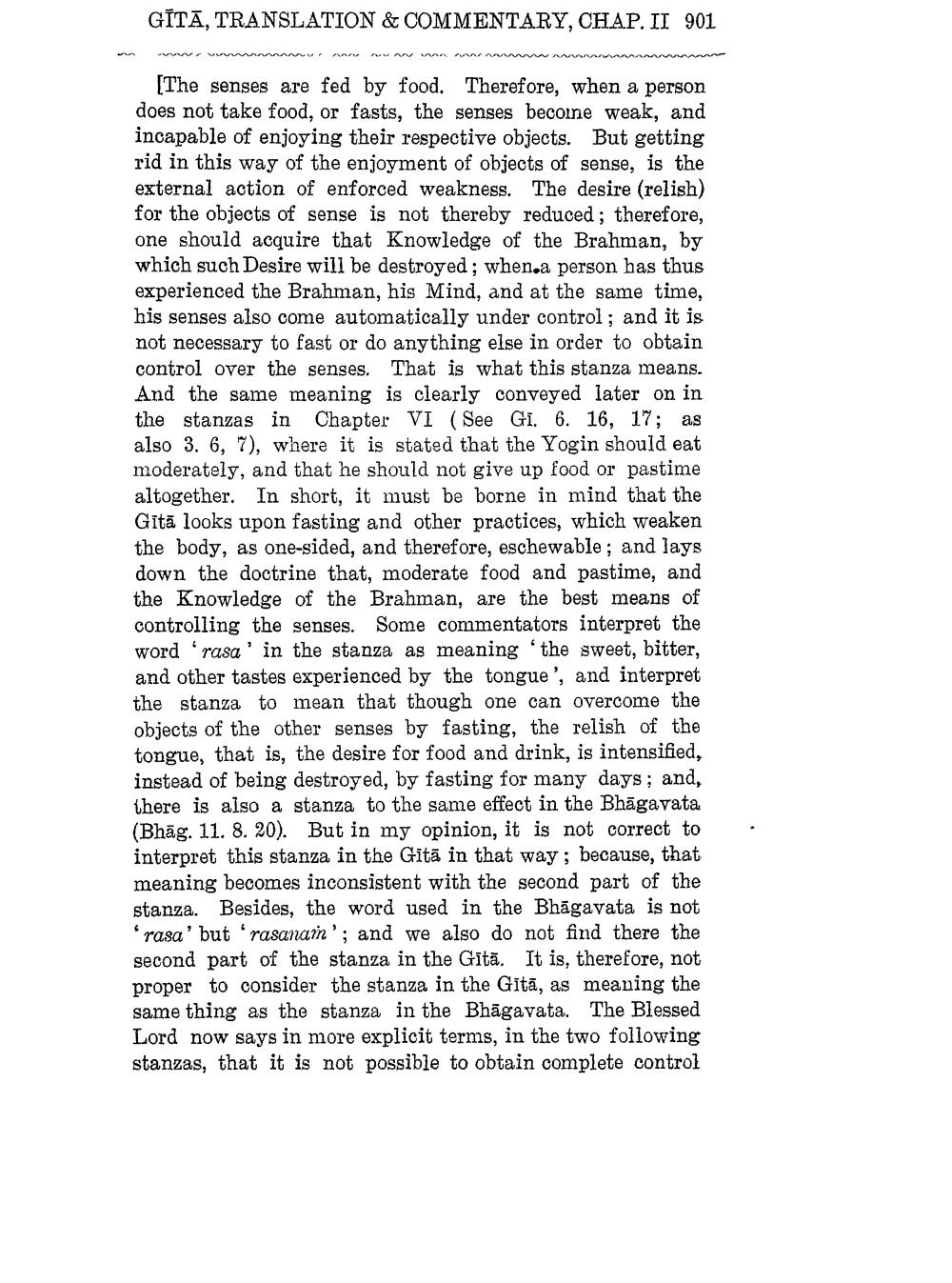________________
GĪTĀ, TRANSLATION & COMMENTARY, CHAP. II 901
[The senses are fed by food. Therefore, when a person does not take food, or fasts, the senses become weak, and incapable of enjoying their respective objects. But getting rid in this way of the enjoyment of objects of sense, is the external action of enforced weakness. The desire (relish) for the objects of sense is not thereby reduced; therefore, one should acquire that Knowledge of the Brahman, by which such Desire will be destroyed; when a person has thus experienced the Brahman, his Mind, and at the same time, his senses also come automatically under control; and it is not necessary to fast or do anything else in order to obtain control over the senses. That is what this stanza means. And the same meaning is clearly conveyed later on in the stanzas in Chapter VI (See GI. 6. 16, 17; as also 3. 6, 7), where it is stated that the Yogin should eat moderately, and that he should not give up food or pastime altogether. In short, it must be borne in mind that the Gītā looks upon fasting and other practices, which weaken the body, as one-sided, and therefore, eschewable; and lays down the doctrine that, moderate food and pastime, and the Knowledge of the Brahman, are the best means of controlling the senses. Some commentators interpret the word 'rasa' in the stanza as meaning the sweet, bitter, and other tastes experienced by the tongue', and interpret the stanza to mean that though one can overcome the objects of the other senses by fasting, the relish of the tongue, that is, the desire for food and drink, is intensified, instead of being destroyed, by fasting for many days; and, there is also a stanza to the same effect in the Bhāgavata (Bhāg. 11. 8. 20). But in my opinion, it is not correct to interpret this stanza in the Gita in that way ; because, that meaning becomes inconsistent with the second part of the stanza. Besides, the word used in the Bhāgavata is not 'rasa' but 'rasanai'; and we also do not find there the second part of the stanza in the Gītā. It is, therefore, not proper to consider the stanza in the Gītā, as meaning the same thing as the stanza in the Bhāgavata. The Blessed Lord now says in more explicit terms, in the two following stanzas, that it is not possible to obtain complete control




